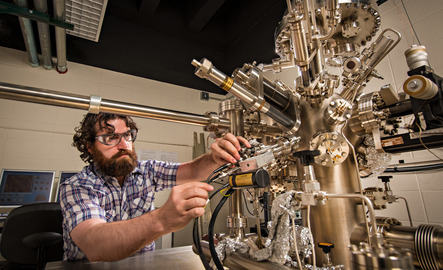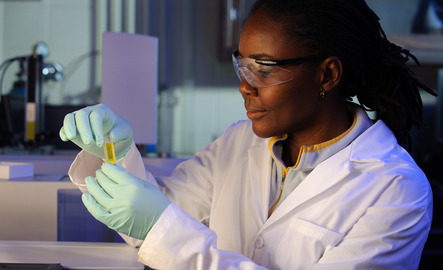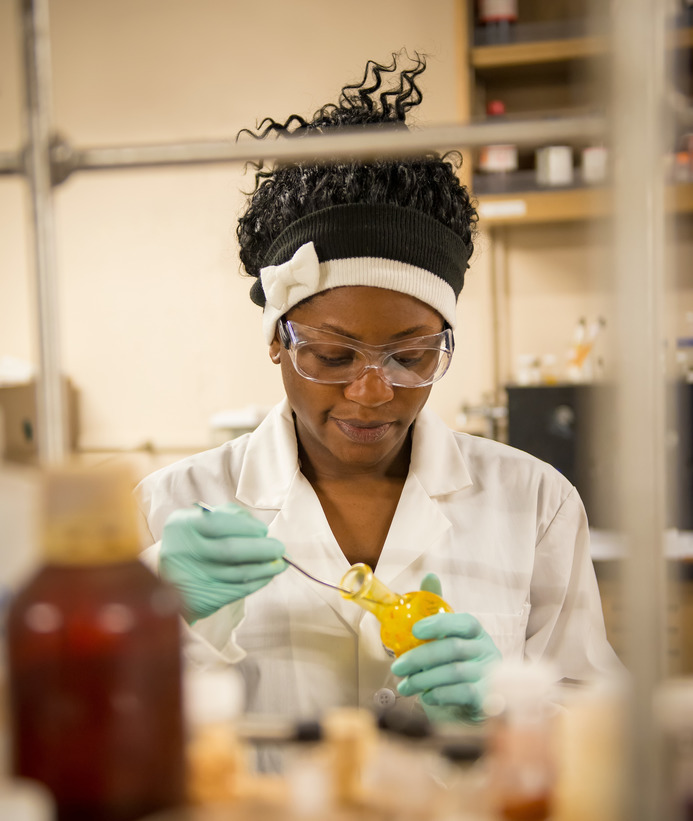About the M.S. in Chemistry
Masters students take advanced coursework in analytical, inorganic, organic and physical chemistry. All students also complete research in their area of interest. In addition to coursework and research, students gain presentation and teaching skills, classroom training and get access to ample professional development opportunities.

Prospective students must have completed the following undergraduate coursework:
- One year of general chemistry
- One semester/quarter of quantitative analysis
- One year of organic chemistry with laboratory
- One year of physical chemistry with laboratory
- One year of physics
- Mathematics through multivariable calculus
All applicants must also take the General Graduate Record Examination (GRE). Both
verbal and quantitative scores are evaluated as part of the admission process.

What can you do with a chemistry master’s degree?
UW chemistry graduates are well-prepared for diverse scientific careers in research, industry and academia. Graduates of this program gain strong analytical, laboratory and problem-solving skills that make them valuable in pharmaceuticals, environmental science, education and more.
- Chemist
- Professor of Chemistry
- Research and Development Scientist
- Associate Manager of Chemistry
- Senior Scientist
- Secondary Chemistry Teacher
- Laboratory Manager
- Quality Control/Assurance Analyst
- Regulatory Affairs Specialist
- Product Development Scientist
- Analytical Chemist
- Environmental Consultant
- Pharmaceutical Scientist
- Forensic Scientist
- Materials Scientist
- Chemical Safety Officer
- Technical Sales Representative
- Science Policy Analyst
- Vanderbilt University
- SC Johnson
- Biogen
- Agilent Technologies
- CoorsTek, Inc.
- University of New Mexico
- Heidelberg University
You can't become a licensed pharmacist with just a chemistry degree, but it’s a great starting point. A chemistry background prepares you well for pharmacy school, which you’ll need to complete, along with licensing exams, to become a pharmacist.
It really depends on your goals. A master’s in chemistry prepares you for advanced roles in labs, industry, or government, allowing quicker entry into the workforce. A Ph.D. involves in-depth research and is ideal for careers in academia, high-level R&D, or leadership positions in scientific fields.


